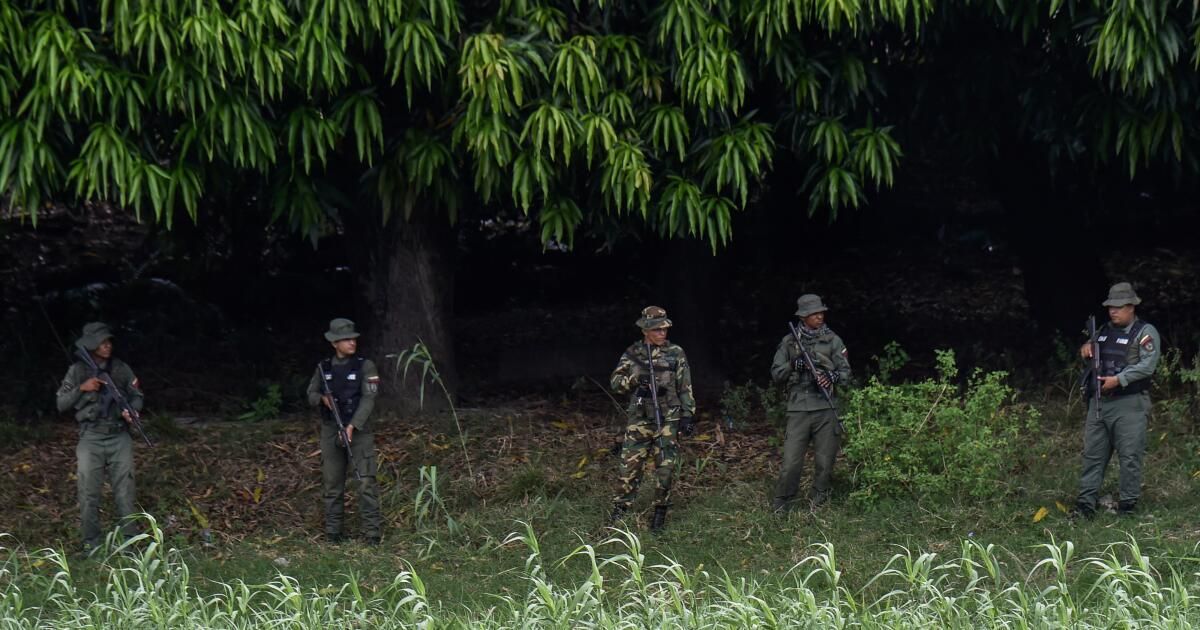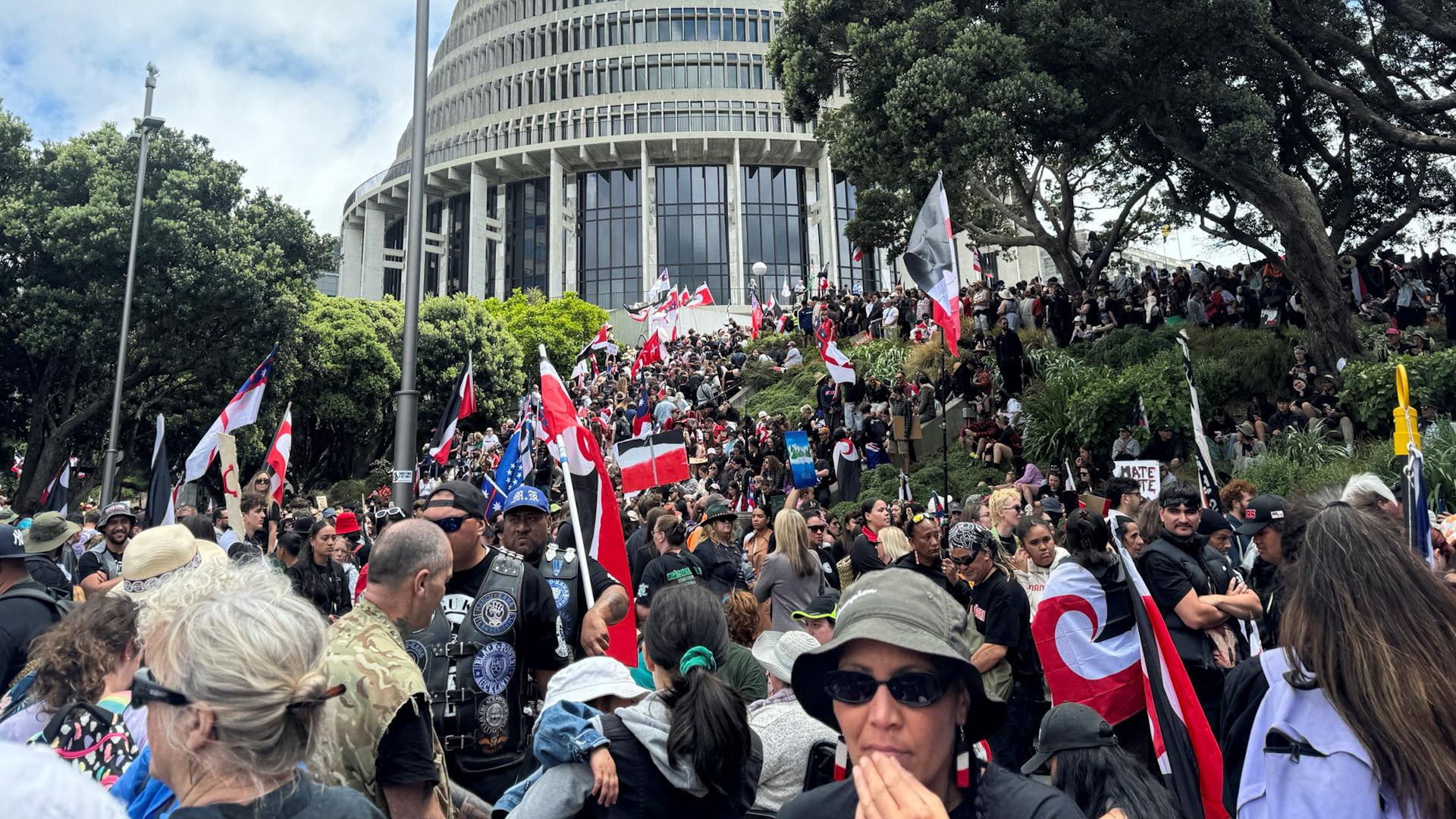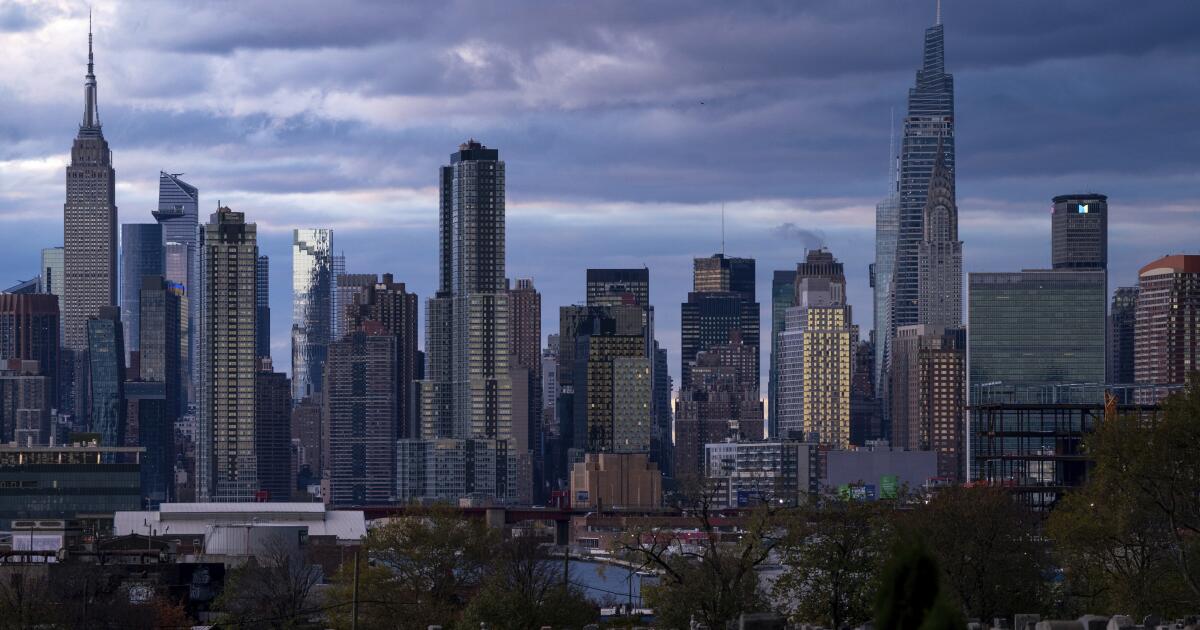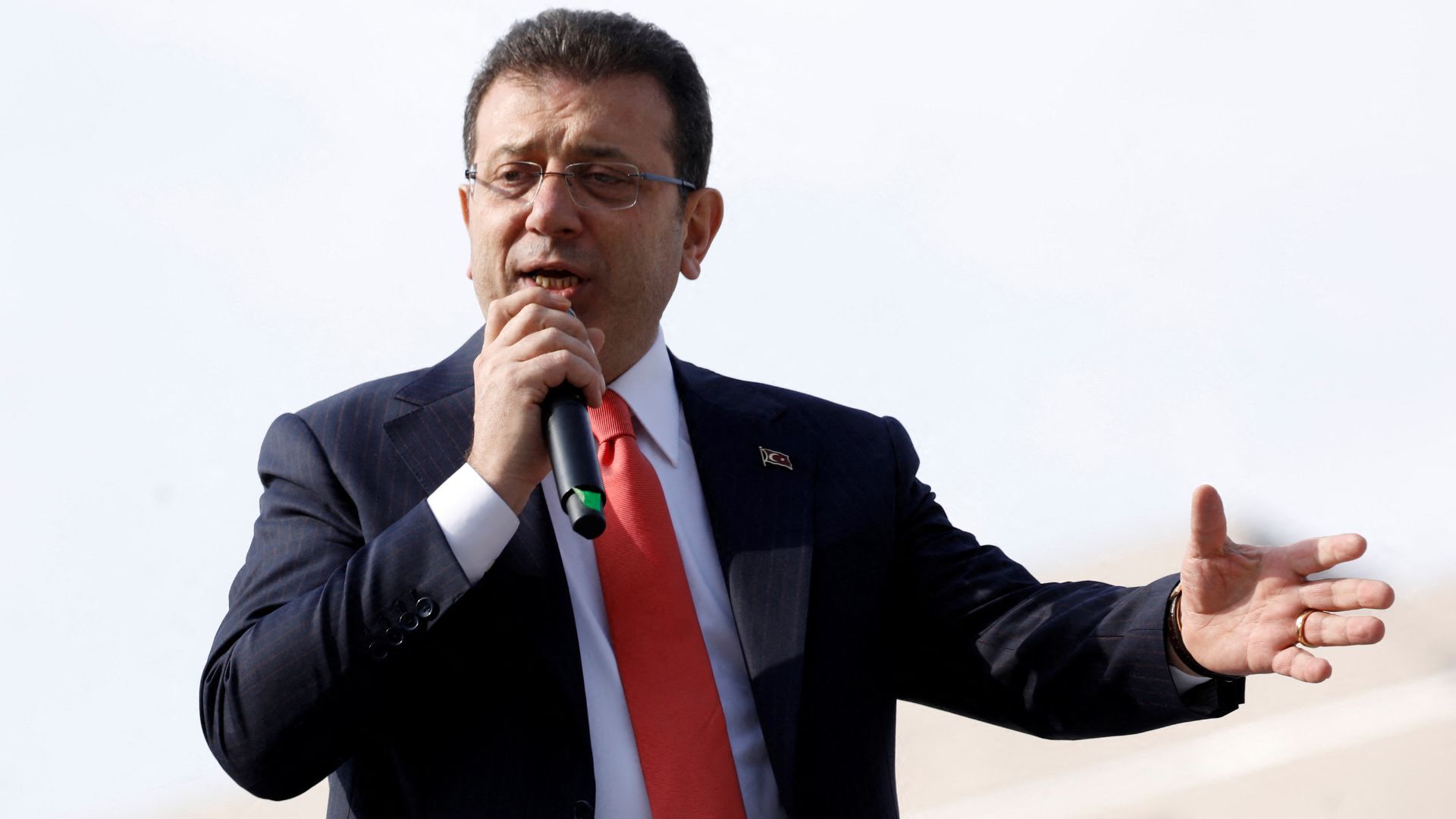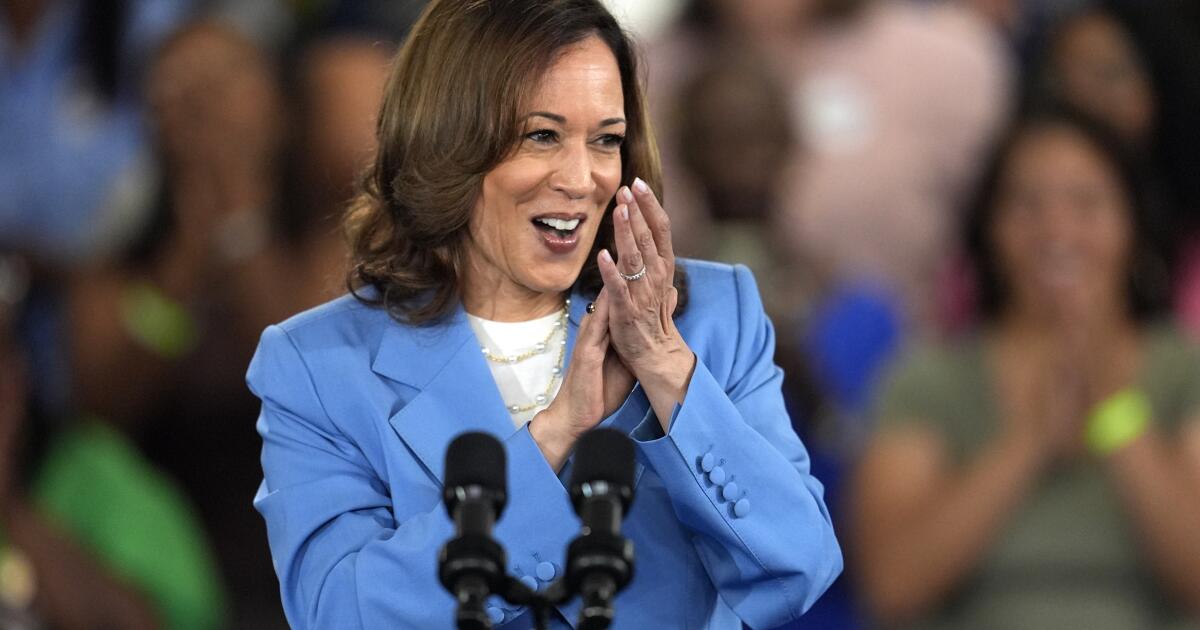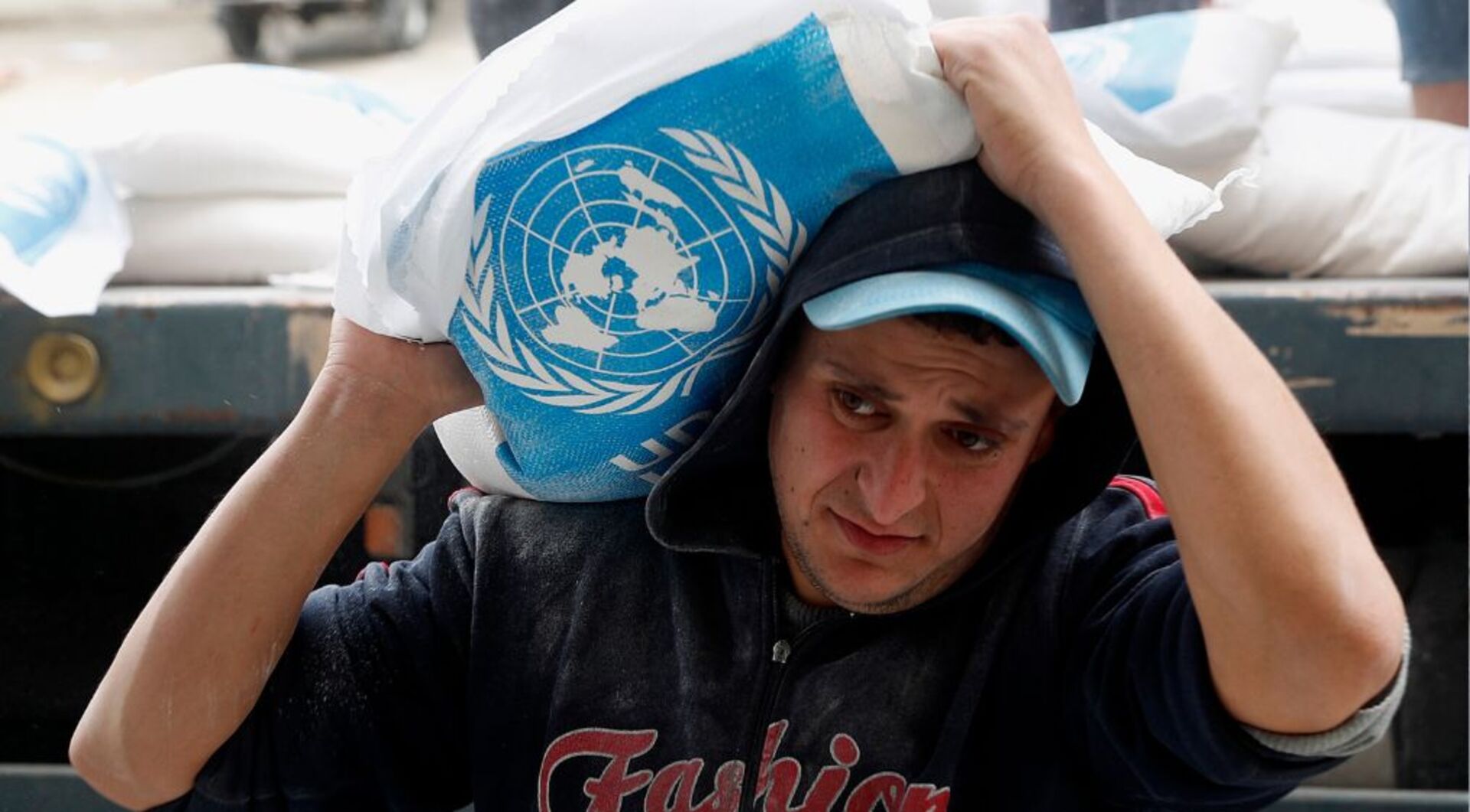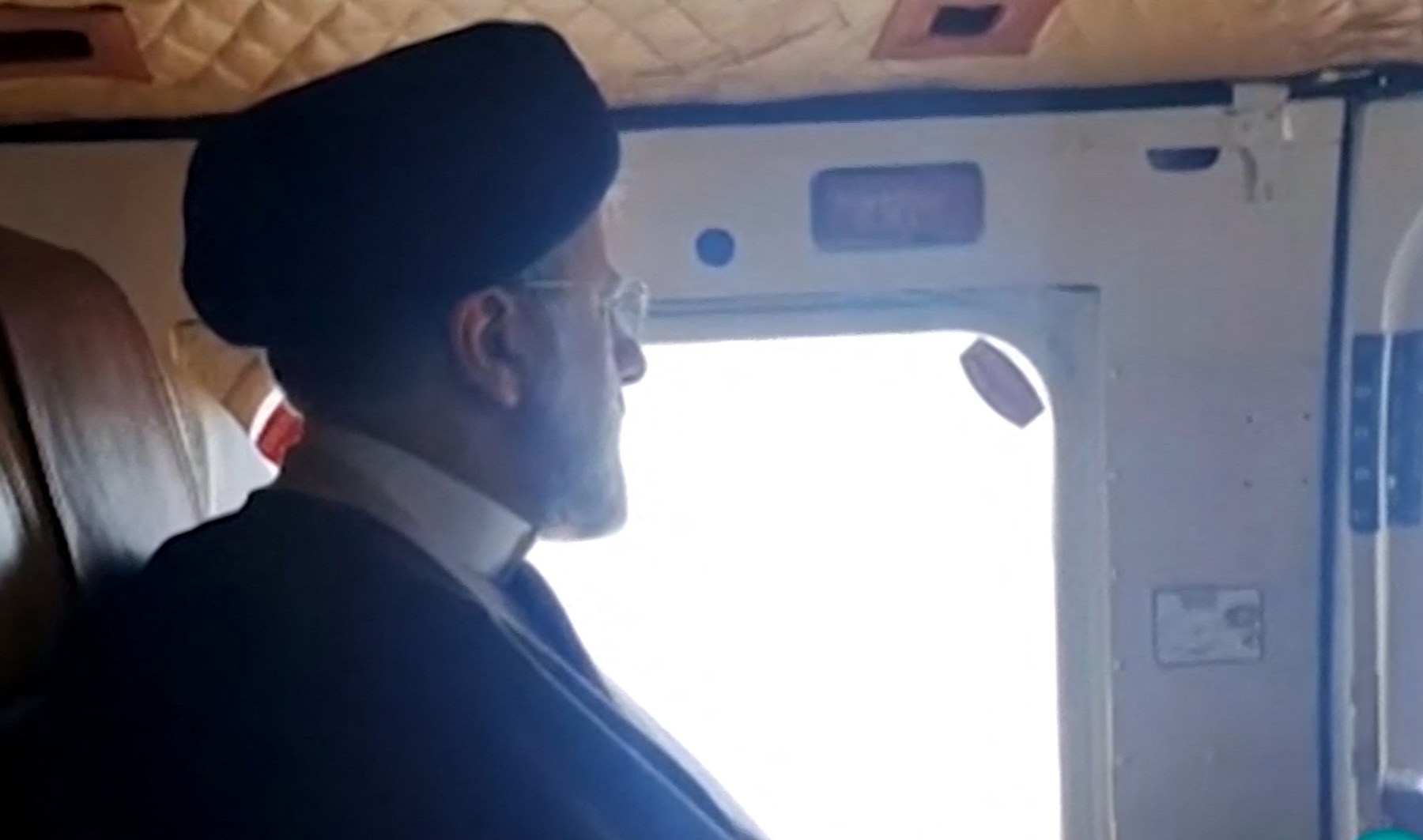CARACAS, Venezuela— At first glance, the United States appears closer than ever to mounting a military campaign to remove President Nicolás Maduro from power in Venezuela.
President Trump says he has authorized the CIA to conduct covert operations inside the Caribbean nation and has massed troops, fighter jets and warships off its coast.
US service members in the region have been prohibited from taking Thanksgiving leave. Airlines canceled flights to Venezuela after the Federal Aviation Administration warned of a “potentially dangerous situation” there. And on Monday the White House officially designated Maduro as a member of an international terrorist group.
In Caracas, the country's capital, there is a palpable sense of anxiety, especially as each new bellicose pronouncement from Washington emerges.
“People are very tense,” said Rosa María López, 47, a podiatrist and mother of two. “Although no one says anything because they are afraid.”
Traffic is light at Simón Bolívar Maiquetía International Airport in Maiquetía, Venezuela, on Sunday after several international airlines canceled flights following a warning from the Federal Aviation Administration about a dangerous situation in Venezuelan airspace.
(Ariana Cubillos/Associated Press)
The Pentagon has presented Trump with a set of military options, a source familiar with the matter told The Times, and is said to be weighing his options. Still, his plans for Venezuela remain opaque.
Trump, while warning of possible military action, has also continually raised the possibility of negotiations, saying he would “probably talk” to Maduro at some point.
“I'm not ruling anything out,” Trump said last week.
Now people in both the United States and Venezuela are asking: Is the US military buildup in the Caribbean a prelude to an invasion or a hoax intended to pressure Maduro into reaching a deal?
There are members of the White House – especially Secretary of State Marco Rubio – who are desperate to overthrow Maduro, a left-wing autocrat whom the United States does not recognize as the legitimately elected president of Venezuela.
But other members of Trump's team seem more determined to secure access to Venezuela's oil riches, and keep them away from China and Russia, than to push for regime change. Parties in that camp could be willing to accept an agreement with Venezuela that does not require Maduro's departure and a plan for a democratic transition.
Months of saber rattling by the United States without any direct military action against the Maduro government may be weakening the Americans' negotiating position, said Geoff Ramsey, a Venezuela expert at the Atlantic Council, a Washington-based research group. “There is a psychological component to this operation and it is beginning to lose credibility,” he said. “I fear the regime will think it has withstood the worst of American pressure.”
Maduro, for his part, insists on being open to dialogue. “Whoever in the United States wants to talk to Venezuela can do so,” he said this week. “We cannot allow the bombing and massacre of a Christian people: the people of Venezuela.”

Venezuelan President Nicolás Maduro, speaking Friday at the presidential palace in Caracas, insisted that he is open to dialogue with the United States.
(Cristiano Hernández / Associated Press)
For years, he has rebuffed attempts to force him from office, even in the face of harsh U.S. sanctions, domestic protests against his government and several crackdowns during the first Trump administration that Caracas considered coup attempts. Experts say there is no evidence that Trump's troop buildup – or his attacks on suspected drug traffickers off the coast of Venezuela – has weakened support for Maduro among the military or other staunch supporters.
Meanwhile, Venezuela has tried to use the prospect of a US invasion to bolster domestic support.
On Monday, senior officials here criticized the State Department's designation of an alleged Venezuelan drug cartel as a foreign terrorist group. Rubio claims that the Cartel of the Suns is “led by Nicolás Maduro and other high-ranking individuals in the illegitimate Maduro regime who have corrupted Venezuela's military, intelligence, legislature, and judiciary.”
Defense Secretary Pete Hegseth praised the declaration for introducing “a bunch of new options” to fight what he described as “narcoterrorists” and “illegitimate regimes.”
The Venezuelan government says that the Cartel of the Suns does not exist. Foreign Minister Yván Gil called Monday's designation a “ridiculous invention.” The United States, he said, is using a “vile lie to justify an illegitimate and illegal intervention against Venezuela under the classic American format of regime change.”
The truth is somewhere in between.
The Cartel of the Suns, experts say, is less a traditional cartel (with a centralized command structure that runs several cells) than a shorthand term used in the media and elsewhere to describe an informal group of corrupt Venezuelan military officers involved in drug trafficking.
The name, Cartel of the Suns, derives from the sun insignia found on the uniforms of Venezuelan soldiers, much like the stars on American military uniforms. It has existed since the early 1990s, when Venezuela was a major transshipment point for Colombian cocaine destined for the US market. Today, only a small portion of the cocaine trafficked to the United States passes through Venezuela.
Venezuelan journalist Ronna Rísquez Sánchez said it is unclear whether Maduro actually directs illicit activities carried out by his military or simply allows them to happen within his government. Either way, he said, “it's happening right under your nose.”
But he did not rule out that taking advantage of Maduro's possible ties to drug trafficking could be a convenient “pretext” for the political machinations of the United States.
For the people of Venezuela, recent weeks have seen a heightened sense of uncertainty and distress as they reflect on ever-conflicting reports of a possible US attack.
More than a decade of political, social and economic upheaval has left people exhausted and numb, often unable to believe everything they hear about the future of the Maduro government. There is a general feeling of resignation and that things can only get worse.
“Every week we hear that they are going to get rid of Maduro, but he is still here,” said Inés Rojas, 25, a street vendor in Caracas. “We all want a change, but a change that improves things, not worsens them. We young people have no future. The immigration doors are closed, we are locked here, not knowing what is going to happen.”
For the most part, people seem to want to put an end to the overwhelming feeling of not knowing what comes next.
“I pray every day for this uncertainty to end,” said Cristina López Castillo, 37, an unemployed office worker who favors Maduro's ouster. “We have no future… or present. We live every day wondering what will happen tomorrow. I am more afraid of hunger than of Trump.”
Still, Maduro retains many supporters, and not just among the military and political elite, whose loyalty has been rewarded with additional wealth. Many people remain grateful for the social welfare legacy of Maduro and his predecessor, Hugo Chávez, and are wary of the United States' motivations in Venezuela.
“We Venezuelans don't want to be anyone's colony, nor do we want anyone to throw bombs at us to get rid of a president,” said José Gregorio Martínez Pina, 45, a construction worker in the capital.
“Is Maduro a drug trafficker? I haven't seen any evidence,” he said. “And if they have it, they should introduce it, instead of having a country living in terror for weeks.”
Times editors Linthicum and McDonnell reported in Mexico City. Mogollón, special correspondent, reported in Caracas. Michael Wilner of The Times' Washington bureau also contributed reporting.

